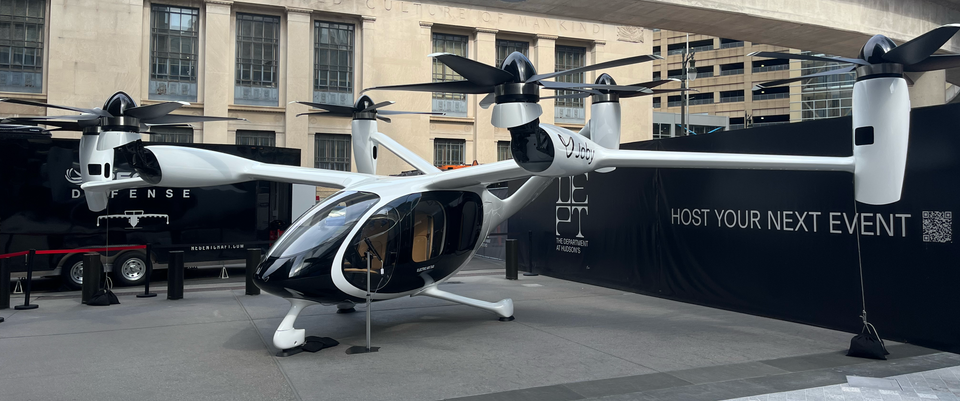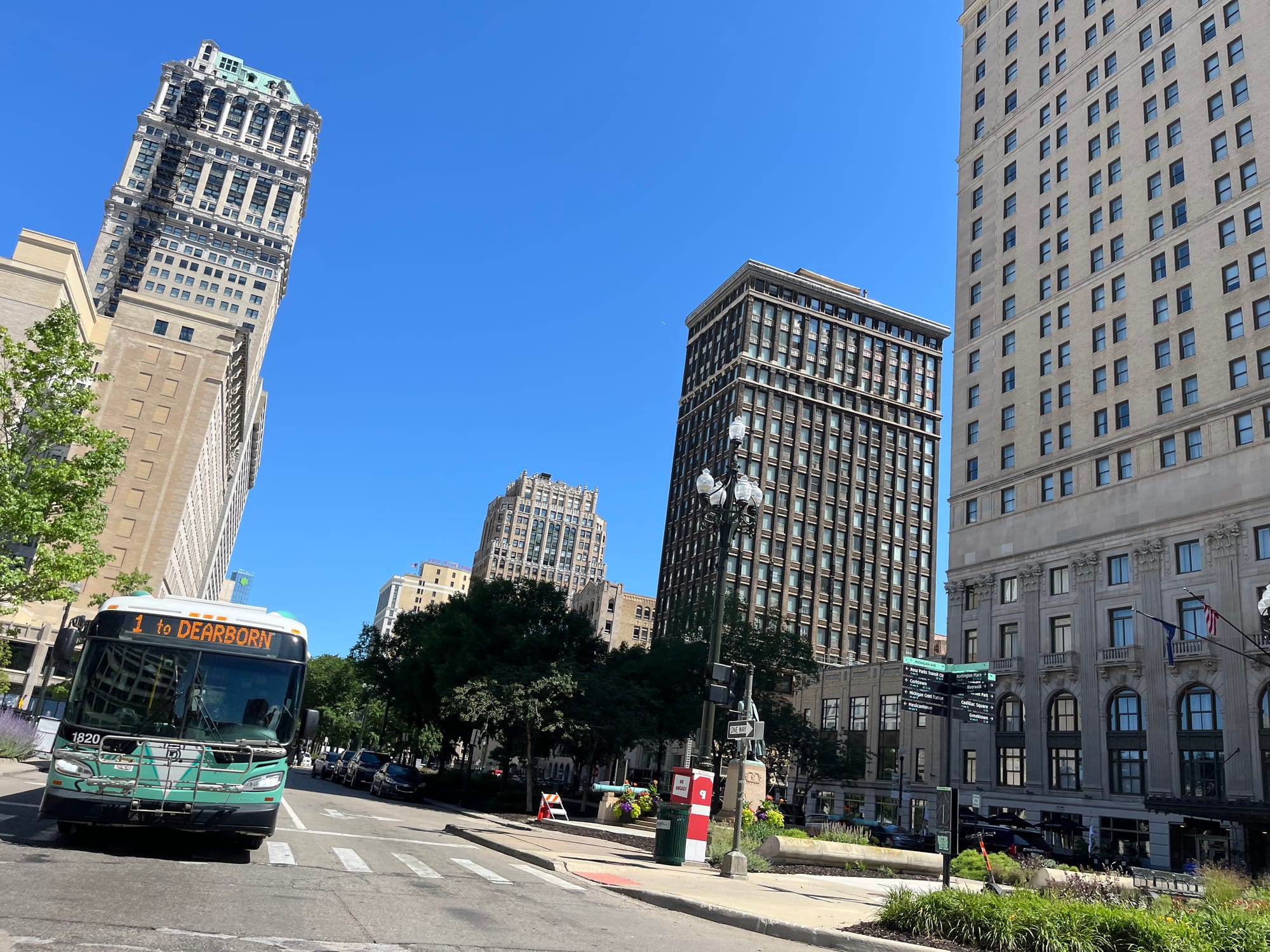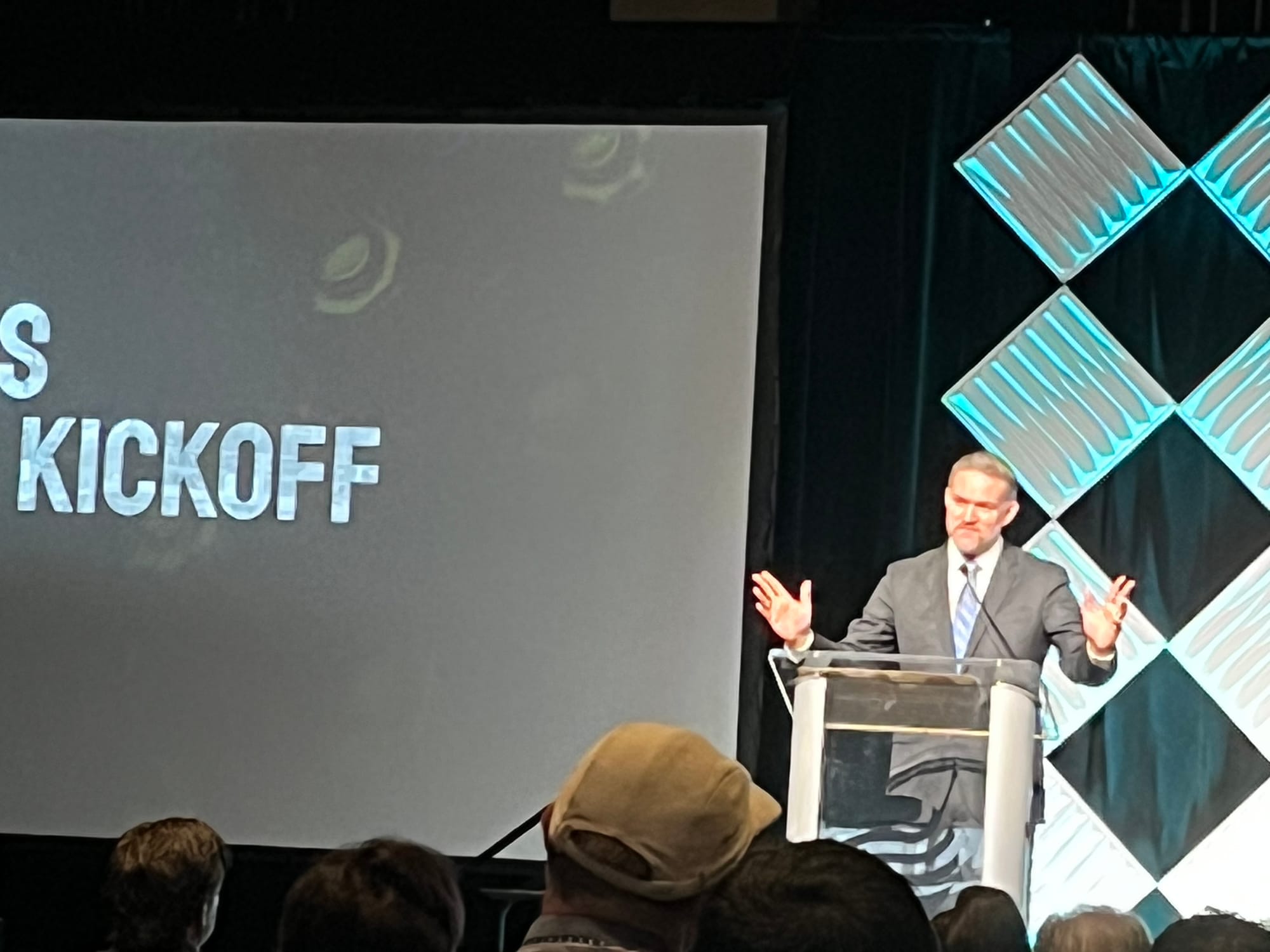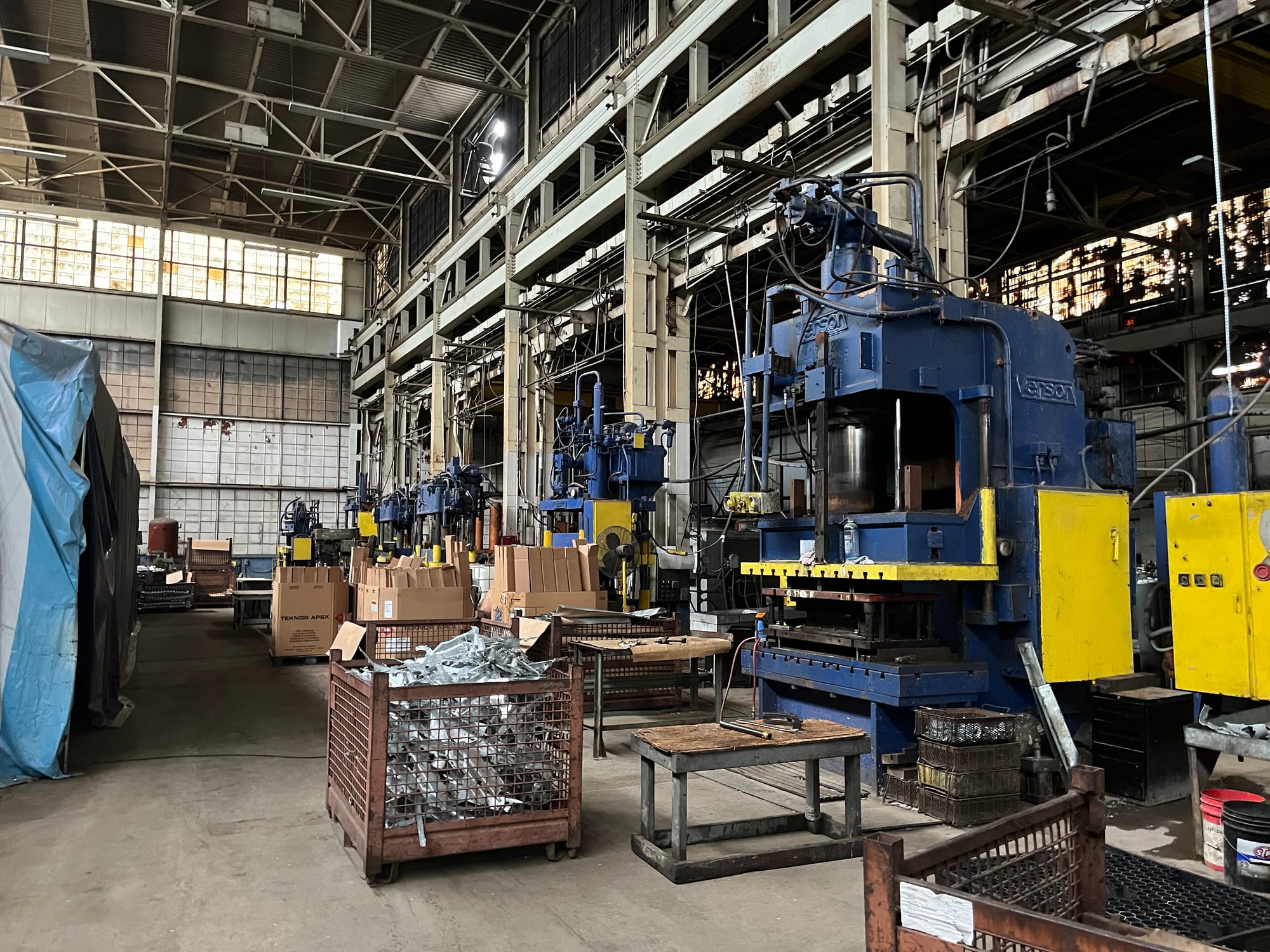Notes from Reindustrialize

Last week I was at Reindustrialize, a yearly conference in Detroit that brings together VCs, policy-makers, and hundreds of companies trying to build things in the United States again. It's only the second year running, and the scale was impressive. You can read about it in the New York Times, Business Insider, and American Mind, but here are my impressions.
First, there's Detroit itself. The city has cleaned up significantly! I stayed downtown a few blocks from the conference center. Despite feeling a little empty the streets were clean, they felt safe even late at night, and everywhere I looked there were new shiny offices. Like the state of U.S. manufacturing, the city itself is poised for a comeback. A fitting setting for a small but growing nexus of techno-optimism. Notably, Mike Duggan, the mayor of Detroit, opened the conference with a promise that Detroit would 'offer the fastest permitting process in the nation for anyone trying to open a factory.' America is ready to go back to work.

I'm in the defense tech camp. I'm very familiar with the companies at the forefront of the new American industrialization: Hadrian, Xometry, Markforged, Exowatt, Anduril. So what I was most interested to see was how policymakers would attend. As Ben Landau-Taylor and Oberon Dixon-Luinenburg wrote in Palladium mag in 2020, "state capacity drives industrialization."
So I was very pleased to see that the policy makers came in droves and brought their staffers. It seemed like every third attendee at the conference was dressed in suit and tie, the sure mark of a Washington D.C. operative.

Jamieson Greer, the U.S. Trade Policy Representative, spoke at length about his three goals to: 1. reverse the trade deficit 2. increase household income 3. increase manufacturing as share of GDP. This guy gets it!
Kelly Loeffler, recently confirmed as Administrator of the Small Business Administration spoke about how DC will help with small business capital formation, a key bottleneck to reindustrialization efforts.
Pete Hegseth, the SECDEF, affirmed that "almost nothing is more important" than a broad national effort to reindustrialize, and recalled America's history of rapid industrialization in Detroit during WWII.
Mike Needham, Chief of Staff to the Secretary of the State Department, gave a rousing speech full of examples from America's history at war and in the factories. I loved these. If we're going to become a nation that makes things again I think it's critically important that we recover our identity as an industrial nation, as we were for most of our early history. As I've written about before, our history is the wellspring of that will fuel this vibe shift and we must do everything we can to tap this essence of deep America if we're going to inspire a new generation of manufacturers. Needham also wrote a follow up piece in American Mind yesterday, which is highly worth reading.
Besides these, at least half a dozen bi-partisan members of Congress sent speeches. As Congress is in session this July, all of these were in the form of video addresses. We heard from Sen. Chuck Schumer, Sen. Roger Wicker, Rep. Alma Adams, Rep. Riley Moore, Rep. John James, Rep. Pat Harrigan, and others. The conference organizers have to be commended for assembling such a star-studded lineup in only the second year running. They've managed to crystallize something that everyone seems to recognize.
I left the conference impressed that Washington D.C. clearly understands the importance of industrializing. We're in the early stages of the game here, so a lot of these voices and efforts are uncoordinated, but seeing this level of focus from Democrats and Republicans alike confirms my belief that reindustrializing the United States is deeply important generational project with broad support, a project that is extremely difficult but has the potential to deliver enormous benefits for the United States if we can pull it off. It's a project that can knit us back together as a nation.
In other words, this is the kind of effort I can devote the rest of my life to.
I went looking for the bar, found an autonomous rail car 👀
— Rich Pluta (@Rich_Pluta) July 17, 2025
Only at Reindustrialize 😂 pic.twitter.com/eAfFhCR4ud
Other highlights are too numerous to mention. There was equipment scattered all around the building, from air taxis to robot machine guns. Palmer Luckey piped in via teleconferencing robot. Outside, there was a full scale simulator from Boom aero where you could land a pretend supersonic jet. For the space of two days the techno-future of America seemed tantalizingly within reach.
At an end-of-conference party I went looking for the bar and, around the corner of a cavernous warehouse, found a fully automated train car. The side discussions and bar chats were intensely interesting. We sipped drinks in old factories as robot arms whirred their demo loops beside us. Every person I met is working on something fabulous. Everyone I met is facing enormous challenges hiring talent, getting capital, and avoiding getting screwed by the Chinese. Bouncing around in the recently scrubbed but curiously empty shell of post-industrial Detroit, it felt like we were children play acting at being grown-ups in the ruins of a civilization built by giants. How I imagined, while wandering between tech demos lit by splash lights, that I'd like to return one day, and instead of hearing the sounds of tasteful party music, I could hear the clank of the industrial presses that slept silently in a corner, patiently waiting their day to come back to life.

But as the father of young children, I know that dream precede maturity. I look forward to coming years of marvels at Reindustrialize as America remembers her strength.